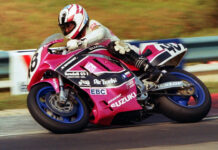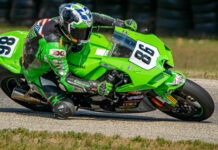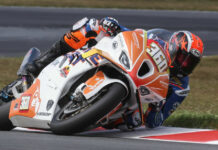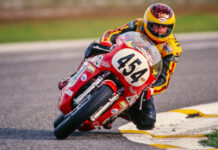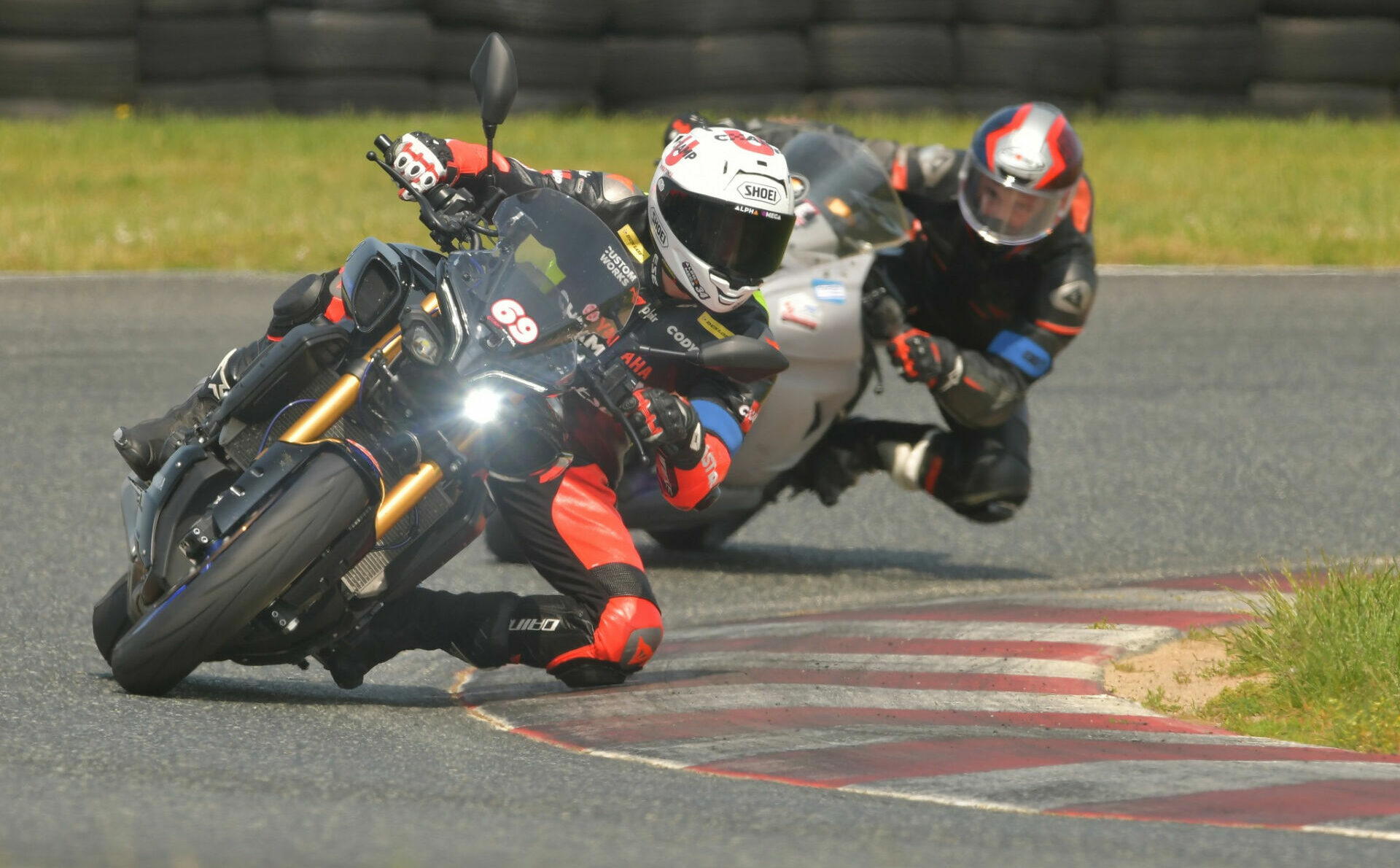FIRST PERSON/OPINION:
By Nick Ienatsch
Riders!
Enjoy Motorcycles Forever!
This Is The Key To Long-Term Motorcycling Happiness.
Well trained riders have more fun riding motorcycles for longer.
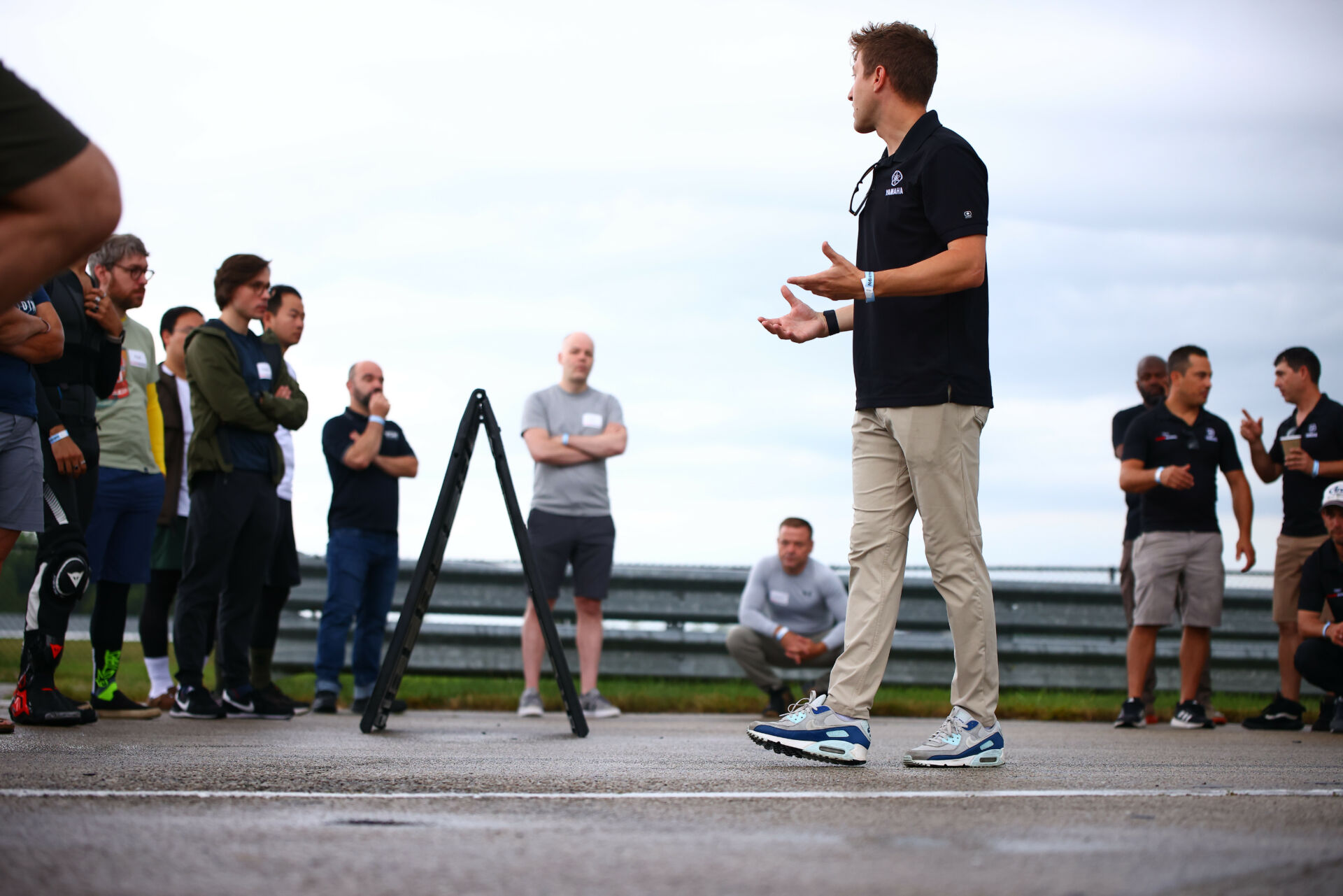
The vast majority of motorcycle road racing champions contemplate quitting the sport at some time in their careers. Injury and losing prompt those contemplations. But rather than become another ex-racer, they work harder on their craft. Quitting due to injury is self-explanatory. Pain and expense lead the list of reasons, but embarrassment and family pressure and a loss of points must be added in. Getting beaten is the second reason racers quit and it can be put more simply: Losing isn’t fun.
My Point
Apply this to our entire industry. Crashing is usually tougher on street riders than racers, and not having fun on your new motorcycle prompts you to leave it in the garage. One crash or six months of hardly riding lead to a “showroom condition, selling with riding gear” advertisement in the local want ads.
My Experience
Expert rider training changes all this. Whether it’s an hour spent talking with a championship-winning racer around a track map or enrolling in a school that teaches riding at the highest level, this expert advice and approach is the game changer. It’s the industry grower.
How about this for an industry motto: Don’t quit, get expert training.
Expert rider training is the shortcut past the crashes that might teach you a lot if you continue to ride. The problem with learning through trial and error is that the errors can be quite difficult to deal with in this sport. This is not waterskiing. Failing to make a cut behind the boat doesn’t compare with failing to make the downhill right-hand corner with a truck in the oncoming lane. “If you’re not crashing, you’re not learning” is BS!
Expert rider training will help you identify the steps that lead to a crash, the mistakes that finally add up to a loss of traction. The experience of the instructors is passed on to you, allowing you to skip over all the mistakes the instructors have made and seen. It’s a great shortcut.
Don’t Forget Fun
Expert rider training makes riding more fun. Suddenly, and I mean suddenly, improvements are rapid; you can run with your friends on the way to breakfast. That new fast motorcycle becomes a joy to ride rather than sheer terror. You learn to ride your old “pile of crap” quite rapidly and safely. Touring in the rain is no big deal, and when you visit the Alps on a rented BMW you are always in the lead group. You start to think about trackdays and even racing. Your expert-based knowledge seeps into your riding group and all ships rise. Riding is more fun because expert training brings you bike control and a technical approach to this often overly emotional sport.
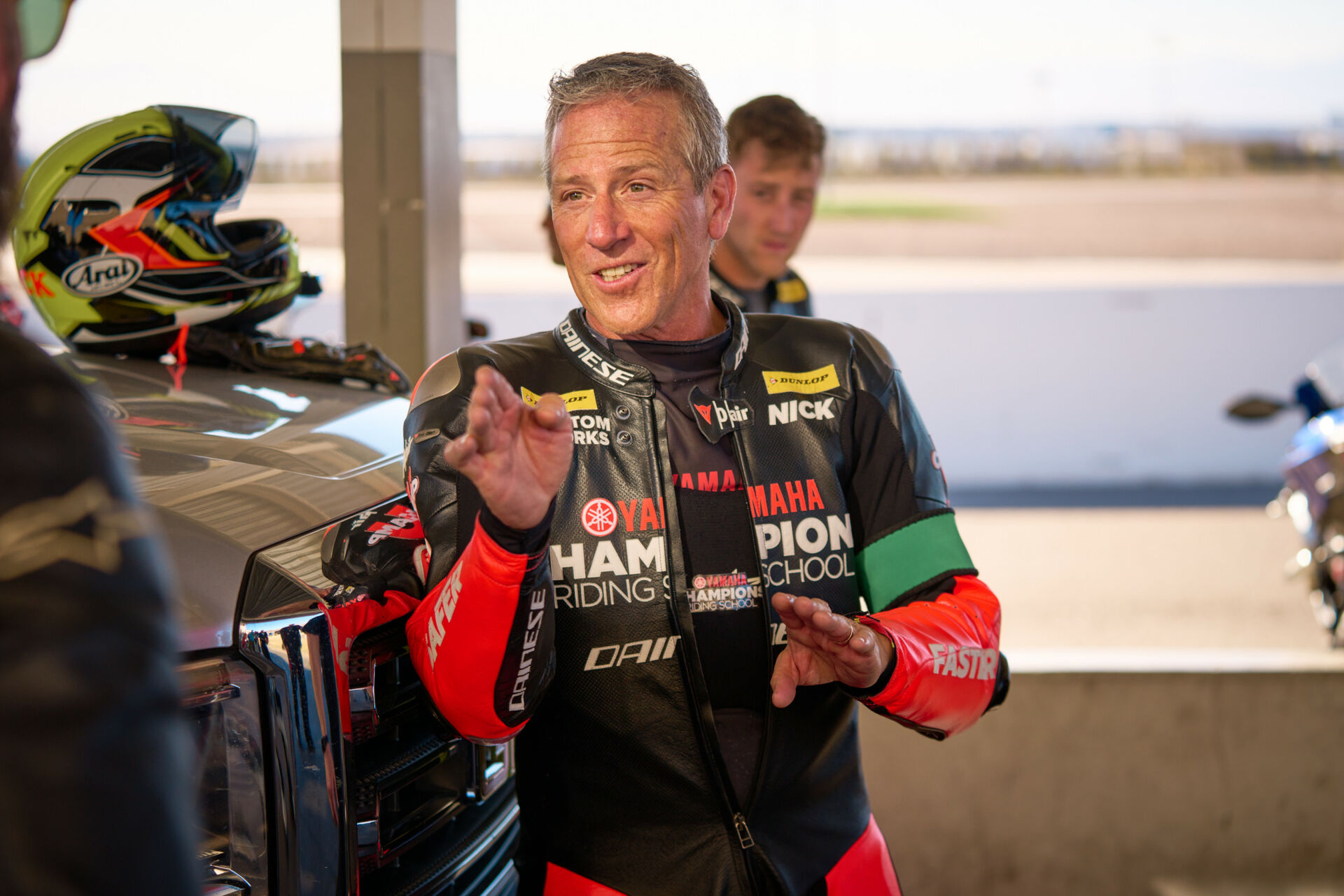
Maybe I’m Wrong
The solution could be antilock brakes. Linked brakes. Traction control. Power modes. Better tires. Improved suspension. But wait… We have all that. What we need to add to all this incredible technological hardware is the rider software, the expert’s approach pre-ride and during the ride. Not just the physical skills used to manage traction and direction, but the focused all-in mental habits that the best bring to their motorcycling. The bikes and tires are getting better and the rider isn’t keeping up. Proper advanced training brings the rider up to the level of the modern motorcycle.
Maybe another motto: Rider training keeps riders riding.
You And Yours
Maybe I’m writing this to you, maybe to your brother or neighbor. I’m speaking directly to these people:
1.) The person who came into our sport and found it too difficult or too scary after their initial foray at a new-rider school. Additional training helps solve those mysteries, making riding more comfortable in all situations.
2.) Someone who doesn’t have time to ride anymore—a euphemism for “riding isn’t fun.” Riders who are hooked on motorcycling will always find time to ride.
3.) Riders who are done with the sport and are selling the bike and all their gear. In other words, these riders fell in love with the sport. They bought the bike, the Rossi replica helmet, extra oil filters, and changed the pipe and turn signals. But now they’re done. They are quitting a pastime that captivated them at some point in their lives.
4.) Motorcycle industry workers who don’t ride. They got in this industry because of their two-wheeled passion but now, due to injury/expense/embarrassment or not having fun because they couldn’t safely keep up with their friends, they are just going through the motions at work without the passion of riding. A love of motorcycle riding makes this the best industry in the world, but without that love it’s just another job.
5.) Rider coaches who are burned out. Boost your enthusiasm by attending an advanced school. Your enthusiasm is an important concern to the industry because you are often the first motorcycle professional a new rider will meet, and your love of riding will be contagious while your burned-out attitude will be another reason your students don’t ride after class. Rekindle your love of the sport with an advanced school.
6.) Track riders or road racers who have hit a plateau in their lap times and enjoyment. When you try to go quicker, you run off the asphalt, yet there are riders on the same bike and tires who are going consistently faster. “Why go beat around the track doing the same thing next year?” you ask yourself. Easy to become an ex-rider at that point, but a visit to an advanced riding school will give you a toolbox full of new techniques and approaches. Time at a school will make you faster safer, with increased understanding of how and why.
To Be Exact
The fun and safety leave this sport when the motorcycle is poorly ridden. Think of it this way: The motorcycle is designed to work with certain inputs at certain moments by expert development riders working with expert development engineers. If the owner of that motorcycle is riding the bike differently, the bike doesn’t work as well. The faster the owner tries to ride, the larger these discrepancies become. The owner is working with the best advice they have heard or read. Some examples of the poor advice I have seen:
1.) An uncle who has ridden slowly for 40 years will advise “use the rear brake only.” Please don’t listen to your uncle.
2.) A forum writer who lives in Nebraska and rides a Rebel 250 will tell you trail-braking is not necessary. Don’t believe everything you read on the internet, especially on forums.
3.) A rider who races but crashes too often will tell you to “flick that thing in there.” Obviously his simplified view of proper corner technique is serving him well. Right?
4.) A passionate rider who really cares but doesn’t have the background posts “training” videos on the internet and advises downshifting for corners and not braking. Passion does not equal knowledge.
5.) You hear, “Power through the corner.” Not every corner.
6.) You read, “You should be accelerating or braking.” What about between those two?
7.) “When in doubt, gas it.” Not always.
8.) “To tighten your line, accelerate.” Dead wrong.
9.) “Don’t use the brakes at lean angle.” One hundred-percent wrong.
10.) “Don’t touch the rear brake.” Wrong again.
11.) You’re convinced that all you need is more seat time, more laps, and that “practice makes perfect.” However, the best rider coaches know that “practice makes permanent,” so riding more miles with poor technique is not the path to improvement, it’s only the path to grooving your mistakes.
12.) You believe that the rider you are now is the rider you will always be. Wrong! Expert-level riding is logical, explainable, and learnable. The expert coaches in this country have enormous faith in every rider’s ability to learn advanced techniques.
Help Fix Two Other Issues
Students who attend advanced training schools are hit with how seriously good riders take their riding. Not only does this message come through loud and clear from the instructors, but the entire class is extremely intent on riding better. They are also hit with the safety of a racetrack when compared to the street. This helps with two vital issues:
1.) Speed choices on the street. A rider who has been to a track-based school and seen what “fast” really means looks at the immovable objects surrounding most public roads and curbs their street speed accordingly.
2.) Alcohol involvement. An advanced riding school stresses the vital importance of rider inputs and approaches in terms of safety, so drinking alcohol before or during a ride becomes as intelligent as riding blindfolded. Alcohol is involved in 25-to-50 percent of motorcycle accidents (depending upon whose stats you read) but riders with advanced training become focused on eliminating anything that is so sure to cause an error.
Riding advice is everywhere but know this: At the limit, which could be setting your personal best lap time at the track or entering a downhill, blind corner in the rain on a road you’ve never seen before, the rider’s actions must be precise and accurate. Poor technique based on flawed advice gets painful when the pace is up or the traction is down. In those moments, expert-level riding instruction will equip you for survival and triumph.
Notice that I haven’t written, “Expert riding instruction will prevent you from crashing again.” That’s the goal of every professional riding instructor, but not a guarantee. But here is a guarantee: If you crash after expert riding instruction, you will get up off the ground knowing what went wrong. You will be able to review the pre-crash action and form a plan to not repeat that series of actions. That keeps riders in the sport.
Expert riding instruction equips riders with the tools and outlook to continue to coach themselves into a constantly improving rider or racer. These students become technical riders rather than emotional riders. Their initial fascination with motorcycles grows into a lifelong passion because they stay healthy.
Summary
The American motorcycle industry isn’t growing and there are many opinions as to why. Blame is going to video games, millennials, a risk-free society, and not enough beginner bikes. But here is my provable belief: Motorcycling in America isn’t growing because riders don’t get the advanced training necessary early in their riding careers. To put this in our earlier parlance: The new riders aren’t riding the bikes as the bikes are designed to be ridden. That’s simply not much fun—scary, in fact.
ChampSchool is working to evolve rider training in America. We ask that the industry join us in pushing riders toward advanced training, whether through promotions like the free driving school you get when you buy a Mercedes-Benz AMG vehicle, or continued support of schools who provide the necessary curriculum to make riders consistently safer.
The information is out there, and it is the job of the motorcycle industry to get riders into these programs. We can guarantee our long-term future by developing expert riders early in their riding careers.
Join us by pushing yourself, your friends, and any rider you know to increase the safety and enjoyment of motorcycling by taking advanced riding instruction from a source you trust. Well-taught advanced instruction has never failed to make riders safer and happier—and faster, if you care about that. Safe, happy riders grow our industry.
If you haven’t had advanced riding instruction, you don’t know how truly amazing riding a motorcycle can be. Yep, I mean that.
How about this motto on every motorcycle classified-ad site: Don’t sell your bike and quit, get trained.


